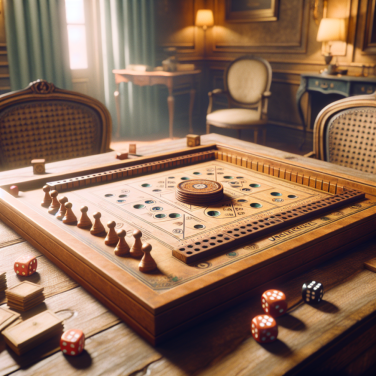The Psychological High: What Makes Competitive Games Thrilling?
Competitive games have a way of stirring emotions in us like few other activities. From adrenaline-fuelled racing games to strategic chess matches, they ignite passion and exhilaration in players of all ages and backgrounds. Psychology plays a crucial role in this phenomenon, particularly when it comes to the thrill and excitement often experienced when engaging in these games.
Understanding the Influence of Dopamine
A key player in the thrill of competitive games is dopamine, a neurotransmitter in the brain associated with pleasure and reward. When we play and win a competitive game, it triggers the release of dopamine which causes feelings of pleasure, satisfaction, and triumph. Conversely, when we lose, the lack of dopamine can have the opposite effect, making us feel downcast and disappointed. This balance of highs and lows keeps us coming back to competitive games, chasing the dopamine-driven high of victory.
The Role of Anticipation and Uncertainty
Just as the thrill of winning a game can drive us to play again, so too can the anticipation of such moments. The unpredictability of competitive games makes them exciting, as we're never quite sure what the outcome will be. This uncertainty also contributes to the feeling of suspense, another psychological factor that increases the allure of these games. The unpredictability and suspense are what make each win more satisfying - we've overcome not only our opponents but also our own doubts and uncertainties.
Social Comparisons and Status Achievement
Playing competitive games is not only about the personal thrill of winning. In many instances, they offer us the chance to compare ourselves to others and possibly ascend the social ladder. By beating others at a game, we prove our intellectual or physical superiority, achieving a higher status among our peers. This can increase our self-esteem and foster a sense of identity and belonging, particularly in social settings.
Creating Strong Emotional Connections
Competitive games often involve strategies, tactics, and high levels of focused attention for prolonged periods. This mental and emotional investment can result in strong emotional connections to the game and associated experiences. The feeling of elation after a hard-fought win, or the crushing disappointment of a last-minute defeat can create momentous emotional experiences that are remembered long after the game has ended.
Challenging Personal Boundaries and Capabilities
Engaging in competitive games often means pushing ourselves to our limits, testing our skills, wit, endurance, and mental toughness. Despite the intensity and challenge, or perhaps because of it, this experience can be exhilarating.
Read also:
Decoding the Cost: How Much are Golf Clubs Really?"
Understanding the Different Varieties of Recreational Competitions
Recreational competitions come in various forms and can be a catalyst for both leisure and enjoyment. Unbeknownst to many, these competitions extend beyond the customary athletic sports and board games you're probably familiar with. Your knowledge of recreational competitions is about to broaden as we explore several types you may not even be aware of.
Traditional sports can't be ignored when discussing recreational competitions. They encapsulate both outdoor games like football, basketball, and softball, and indoor sports like table tennis or squash. Participation in these games often enhances physical fitness and fosters teamwork.
Board games, too, are a staple in the realm of recreational competitions. They can range from strategic play such as chess or risk, to trivia-based games like Trivial Pursuit, to classic family favorites like Monopoly and Scrabble. Despite being traditionally played in a casual family-centric environment, these games can become much more competitive when played at a high level. They require strategic thinking, foresight, knowledge, and a pinch of luck.
With technology's evolution, video games have grown into a prominent form of recreational competition. eSports, competitive gaming at a professional level, has blossomed, hosting international tournaments with millions upon millions of viewers. These games vary in genre from multi-player online games to sports simulations and require significant skill, strategy, and teamwork.
Escape rooms have recently surged in popularity as a form of recreational competition. These are physical adventure games where players are locked in a room and must use elements of the room to solve a series of puzzles, find clues, and escape the room within a set time limit. This requires teamwork, creativity, and problem-solving skills.
Pub quizzes have been a long-standing recreational competition, often serving as a gathering for trivia enthusiasts. They can cover a wide range of topics from pop culture to general knowledge and history. Participating in these quizzes often requires a vast breadth of knowledge and recall speed, amongst an enjoyable social outing.
Another interesting form of recreational competition is hobby competitions. These involve individuals or groups engaging in competitive events based around their hobbies. From photography and art contests to cooking competitions, these events often showcase participants' passion and creativity.
Finally, there are physical competitions that have earned a space in the world of recreational competitions. Activities such as rock climbing, obstacle races, yoga challenges, even dance-offs, can be hosted recreationally, giving participants an opportunity to showcase their physical prowess in a more unconventional setting.
As the world evolves, so does the nature and variety of recreational competitions.




